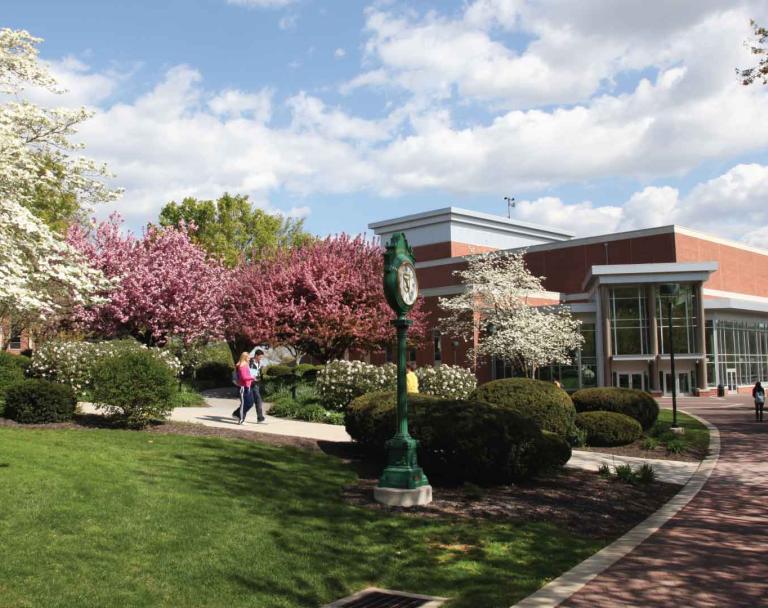On the Ground: Electrical Engineering Lab in Kinsley Engineering Center

On the Ground: Electrical Engineering Lab in Kinsley Engineering Center
December 21, 2022At first glance, York College of Pennsylvania may look like a typical campus in a typical college town—but look a little closer, and you’ll discover a community full of hidden (and not-so-hidden) gems. In our On the Ground series, we explore some of YCP’s most meaningful places and spaces, both on campus and in nearby York, with help from our own Spartan students.
If you’re an Electrical Engineering major, chances are you’ll be using the Electrical Engineering Lab in Room 128 of the Kinsley Engineering Center.
The lab, which also hosts a few Mechanical Engineering majors, boasts a wide variety of equipment, including testing apparatuses, oscilloscopes, flyback converters (which is a circuit component used in lasers, photocopiers, and printers) and more.
“The ability to test and create circuits gives you a real-world response that this program really emphasizes,” says Gabe Holley ’22, who graduated from York College in August with a dual degree in Computer and Electrical Engineering. He used the lab throughout his entire four years at the College, especially the testing apparatuses and flyback converters, which measure various aspects of an electrical circuit created in class, to include output voltage or input current.
Other than the equipment, the Electrical Engineering Lab looks like a regular classroom, with worktables, a projector screen, and desktops—but don’t let that fool you. Everything in the Engineering programs is designed with a real-world focus, which requires students to get hands-on with their learning, from the start of their college career.
“Many universities only allow their equipment to be accessed by graduate students, but here all of our undergraduates have access to all the equipment we have,” says Dr. Kala Meah, Associate Professor and the Assessment Director for Electrical and Computer Engineering. “If someone is recording data, someone is watching it and one person doing the experiment. In our lab, everyone has access to the lab, so you have hands-on experience with the lab itself.”
Dr. Meah, who has been teaching First-Year Engineering, Capstone Design, and Power Systems courses at the College for over 15 years, tries to mimic real-world applications within the lab itself. “We teach students basic information, and we get them the fundamentals and hands-on experience in the classroom,” he says. All Engineering programs also have co-op requirements, to fill in the practical experience students need to finish out their education.
Because Electrical Engineering is made of many smaller components, there aren’t bigger pieces of equipment in the lab like there are for Mechanical Engineering.
“Electrical engineering, by nature, is a lot of smaller parts,” Dr. Meah says. “What we do here is we put them together and make them work. Mechanical Engineering has big equipment—they have a wind tunnel, they even have a small power plant. We don't have that because we work with smaller equipment and put it together to make it work.”
Overall, the lab is designed with the Engineering program’s goal in mind: to give students as much real-world experience as possible, so they’re adequately equipped to deal with any problems they may face after they graduate.
“Our students aren’t afraid of building or breaking things. If you are, you can’t break it down and learn,” Dr. Meah says. “Our students are very hands-on. They're ready From Day One to go out there and make a difference.”
Categories
